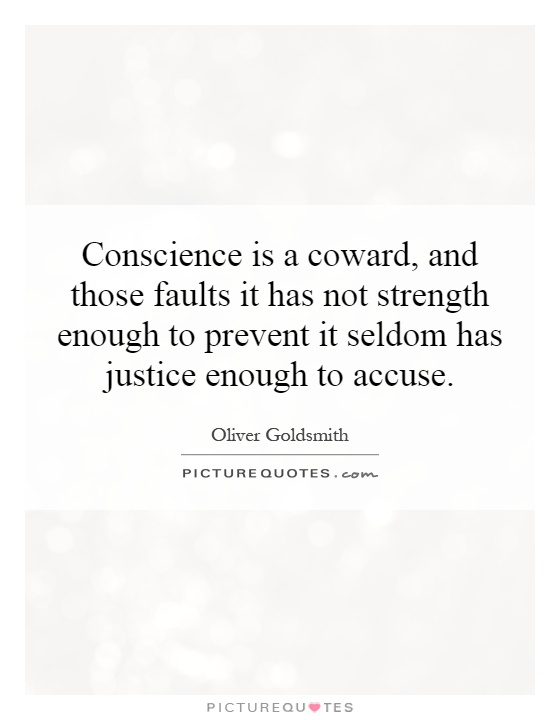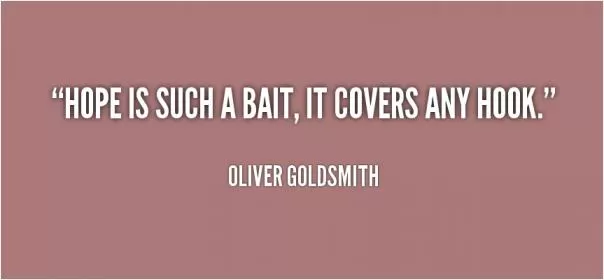Conscience is a coward, and those faults it has not strength enough to prevent it seldom has justice enough to accuse

Conscience is a coward, and those faults it has not strength enough to prevent it seldom has justice enough to accuse
Oliver Goldsmith, an Irish novelist, playwright, and poet, was known for his keen observations of human nature and society. In his works, he often explored the complexities of morality and conscience. One of his most famous quotes, "Conscience is a coward, and those faults it has not strength enough to prevent it seldom has justice enough to accuse," perfectly encapsulates his views on the subject.Goldsmith believed that the conscience, while a powerful force in guiding our actions, is ultimately a weak and unreliable judge of our own faults. He understood that people often struggle to live up to their own moral standards, and that our conscience can be easily swayed by external influences. In his view, our conscience is quick to condemn others for their faults, but hesitant to acknowledge our own shortcomings.
This idea is reflected in many of Goldsmith's works, where characters grapple with moral dilemmas and the consequences of their actions. In his novel "The Vicar of Wakefield," for example, the protagonist Reverend Primrose is a man of strong moral convictions, but he is also prone to making mistakes and misjudgments. Despite his best intentions, he often finds himself in difficult situations where his conscience is tested.
Goldsmith's quote also speaks to the idea of hypocrisy and self-deception. He understood that people are often quick to judge others for their faults, while turning a blind eye to their own. Our conscience, he believed, is easily swayed by our own biases and desires, making it a poor judge of our own actions.












 Friendship Quotes
Friendship Quotes Love Quotes
Love Quotes Life Quotes
Life Quotes Funny Quotes
Funny Quotes Motivational Quotes
Motivational Quotes Inspirational Quotes
Inspirational Quotes